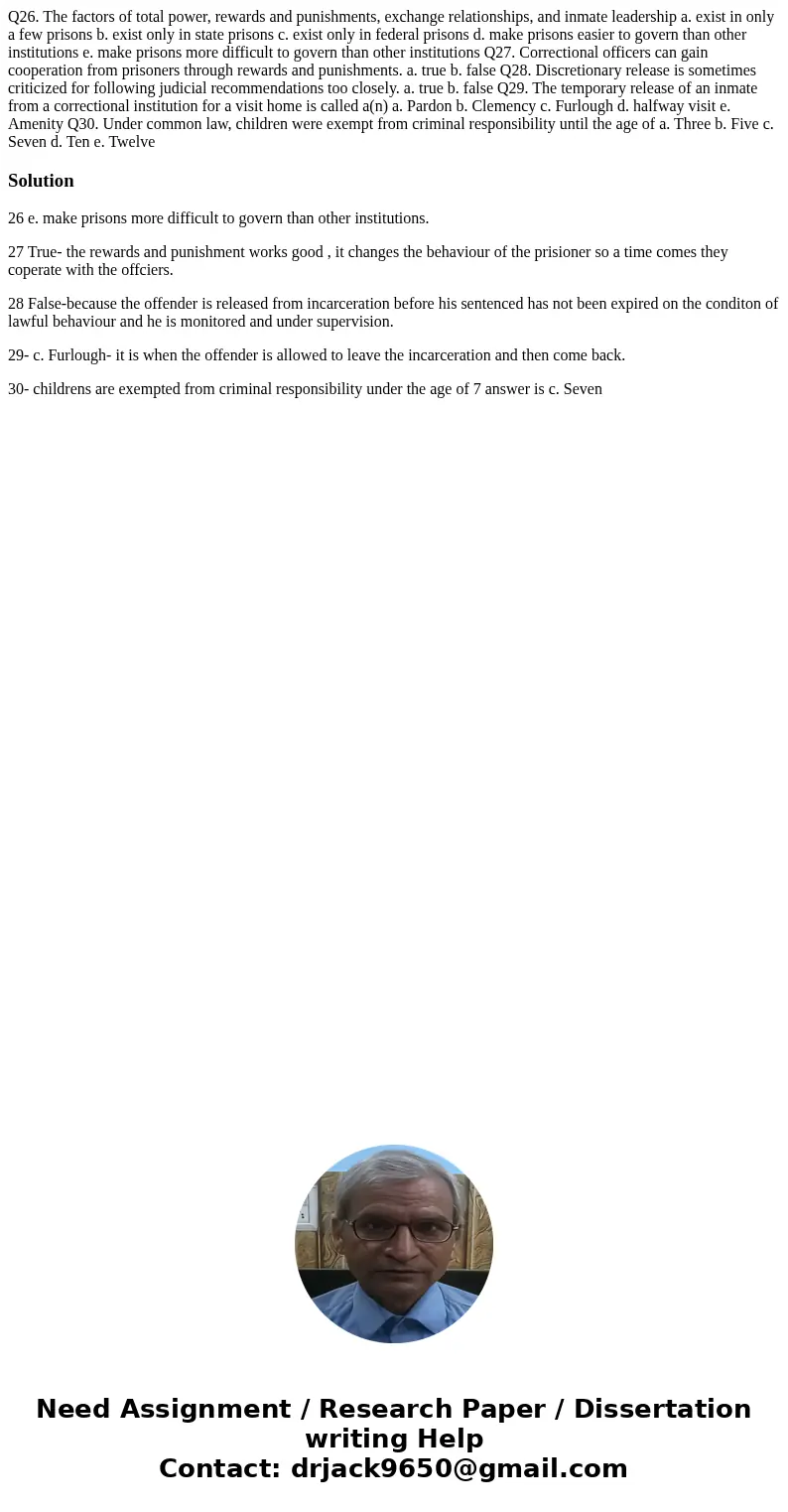Q26 The factors of total power rewards and punishments excha
Q26. The factors of total power, rewards and punishments, exchange relationships, and inmate leadership a. exist in only a few prisons b. exist only in state prisons c. exist only in federal prisons d. make prisons easier to govern than other institutions e. make prisons more difficult to govern than other institutions Q27. Correctional officers can gain cooperation from prisoners through rewards and punishments. a. true b. false Q28. Discretionary release is sometimes criticized for following judicial recommendations too closely. a. true b. false Q29. The temporary release of an inmate from a correctional institution for a visit home is called a(n) a. Pardon b. Clemency c. Furlough d. halfway visit e. Amenity Q30. Under common law, children were exempt from criminal responsibility until the age of a. Three b. Five c. Seven d. Ten e. Twelve
Solution
26 e. make prisons more difficult to govern than other institutions.
27 True- the rewards and punishment works good , it changes the behaviour of the prisioner so a time comes they coperate with the offciers.
28 False-because the offender is released from incarceration before his sentenced has not been expired on the conditon of lawful behaviour and he is monitored and under supervision.
29- c. Furlough- it is when the offender is allowed to leave the incarceration and then come back.
30- childrens are exempted from criminal responsibility under the age of 7 answer is c. Seven

 Homework Sourse
Homework Sourse